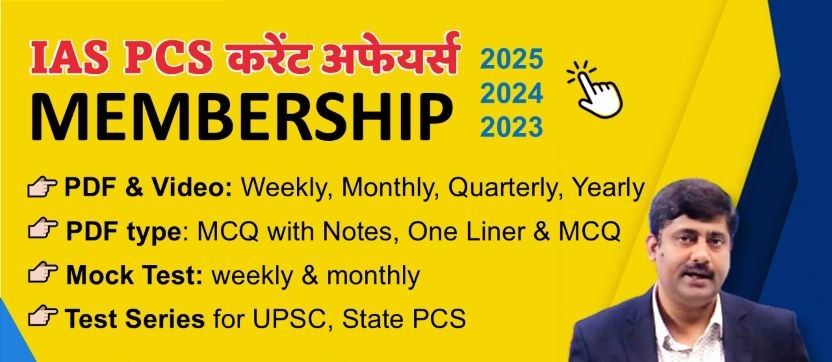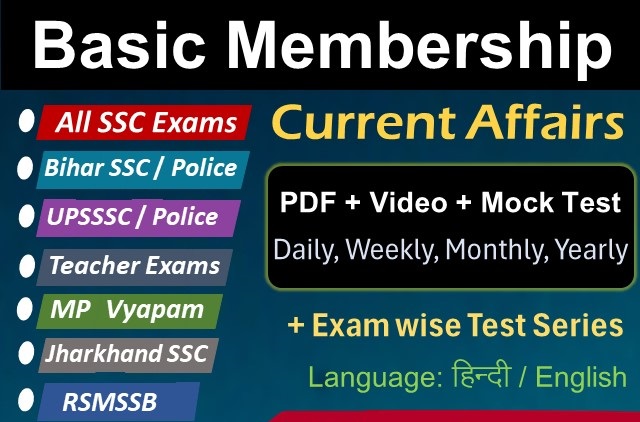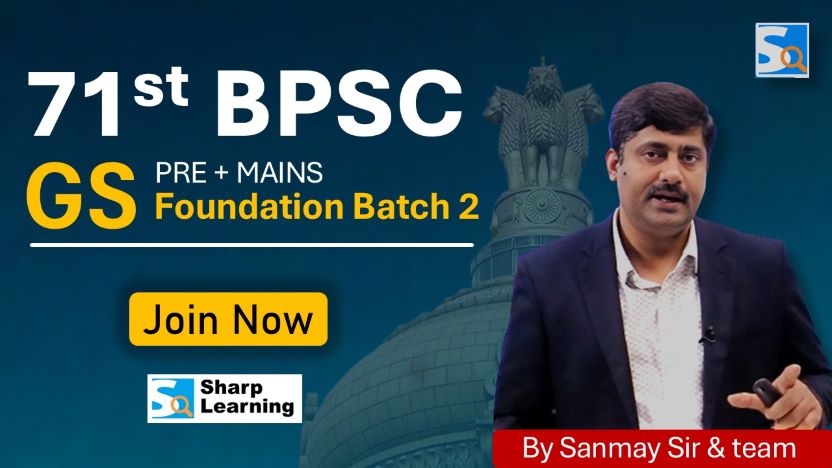This is the current affairs of 10 December 2024. Here are questions and answers of daily current affairs for better preparation of competitive exams for government jobs.
PDF Download: Click here
1. Who has been appointed as the new Governor of Reserve Bank of India (RBI) by the Central Government?
a. Vinay Mohan Kwatra
b. Rajiv Kumar Tyagi
c. Vinod R Khanna
d. Sanjay Malhotra
Answer: d. Sanjay Malhotra
– The Appointment Committee of the Cabinet of the Central Government has appointed Sanjay Malhotra as the new Governor of the RBI.
– His tenure will be for three years, starting from December 10, 2024.
– He has replaced Shaktikanta Das.
– Shaktikanta Das’ second term (six years) will end on December 10, 2024.
– Das was awarded an A+ grade for the second consecutive year by Global Finance magazine in October and was named the top central banker globally.
About Sanjay Malhotra:
– The new Governor, Sanjay Malhotra, has previously served as the Revenue Secretary of the Government of India.
– As the Revenue Secretary, Malhotra handled tax policy related to both direct and indirect taxes.
– He was an IAS officer of the 1990 batch from the Rajasthan cadre.
– He studied Computer Science Engineering at IIT Kanpur.
– He earned a Master’s degree in Public Policy from Princeton University, USA.
– He will also be the ex-officio Chairman of the Reserve Bank of India’s Monetary Policy Committee.
Challenges for the new RBI Governor:
– The new Governor will face the challenge of balancing the high inflation data with growth expectations.
– In the July-September quarter, India’s economy grew at its slowest pace (5.4%) in seven quarters.
– Retail inflation reached 6.21% in October, the highest in 14 months. This exceeds the RBI’s target range of 2-6% for inflation.
Tension between RBI and the Government:
– Shaktikanta Das’ term as the head of the Indian Reserve Bank (RBI) ends on December 10, and during his second term, there was some friction with the North Block (the government).
– This was due to the central bank’s refusal to cut key policy rates, despite increasing demands to tackle the slowdown in GDP growth. However, tensions between the government and RBI are not new or unusual.
– There has been a longstanding confrontation between the two sides, as successive governors have tried to protect the autonomy and independence of the central bank.
– The four predecessors of Governor Das—Y.V. Reddy, D. Subbarao, Raghuram Rajan, and Urjit Patel—also faced rising tensions with the government in Delhi over several issues, including the matter of rate cuts to promote growth.
RBI – The Banker’s Bank:
– Establishment: April 1, 1935
– Headquarters: Mumbai
————–
2. RBI created Artificial Intelligence (AI) model to deal with mule accounts of banks, name it?
a. BankHunter.AI
b. MuleAccount.AI
c. MuleHunter.AI
d. None of these
Answer: c. MuleHunter.AI
– The Reserve Bank of India announced in December 2024 that it has developed an Artificial Intelligence (AI)-powered model to help banks tackle the growing problem of “mule” bank accounts.
– This will assist in reducing digital fraud.
– The RBI developed MuleHunter.AI through its Innovation Hub (RBIH).
What is a Mule Account?
– Data from the National Crime Records Bureau (NCRB) revealed that 67.8% of all cybercrime complaints received in the second quarter of 2022 were related to online financial fraud.
– A significant challenge in preventing financial fraud is the use of money mule accounts.
– A mule account is a bank account used by criminals to launder illegal money, which is often opened by an unsuspecting individual who is lured by promises of easy money or coerced into participating.
– RBIH has developed an in-house AI/ML-based solution that is more effective than a rule-based system in identifying suspicious mule accounts.
—————
3. Due to imposition of martial law, the Justice Ministry of which country imposed a foreign travel ban on its own President?
a. North Korea
b. South Korea
c. Taiwan
d. China
Answer: b. South Korea
– South Korean President Yoon Suk-yeol declared martial law (military rule) on December 3, 2024. However, within 6 hours, the parliament passed a proposal against it, which automatically revoked the martial law.
– In this matter, the then Defense Minister Kim Yong-hyun has been arrested. He had suggested the imposition of martial law to the President.
Travel Ban:
– South Korea’s Ministry of Justice informed a parliamentary hearing that, at the request of the police, prosecutors, and the anti-corruption agency, a travel ban has been imposed on President Yoon Suk-yeol.
– The Ministry of Justice is investigating the circumstances surrounding President Yoon’s power seizure.
– The President of South Korea is generally immune from prosecution while in office, but this immunity does not apply in cases of rebellion or treason.
– This means that Yoon can be questioned by the police regarding his martial law order, and he could be taken into custody.
– However, many observers are skeptical about whether the police will forcibly detain him or search his office, as there is a possibility of conflict with the presidential security service.
South Korea:
– Capital: Seoul
– President: Yoon Suk-yeol
– Prime Minister: Han Duck-soo
– Currency: South Korean Won
– Neighboring Countries: North Korea
– Seas: Sea of Japan, Yellow Sea
—————
4. India became the President of which th session of the United Nations Commission on Narcotic Drugs (CND) for the first time?
a. 60th
b. 63rd
c. 68th
d. 72nd
Answer: c. 68th
– India has been chosen for the first time to preside over the 68th session of the United Nations Commission on Narcotic Drugs (CND).
– The Embassy of India in Austria stated in a social media post in December 2024 that India has been chosen to chair the 68th session of the Narcotic Drugs Commission (CND).
– Ambassador Shambhu S. Kumaran, India’s Permanent Representative to the United Nations in Vienna, officially took over the chairmanship of the CND.
United Nations Commission on Narcotic Drugs (CND):
– Establishment: 1946
– Headquarters: Vienna, Austria
– Part of: UN ECOSOC (United Nations Economic and Social Council)
Illegal Drugs: A Source of Human Suffering
– Illegal drugs are a source of human suffering. The most vulnerable individuals, particularly the youth, bear the brunt of this crisis. Those who use drugs and struggle with addiction face numerous challenges: the harmful effects of the drugs themselves, the stigma and discrimination they endure, and often, harsh and ineffective responses to their condition.
————–
5. When is National Energy Conservation Day celebrated?
a. 13 December
b. 14 December
c. 15 December
d. 16 December
Answer: b. 14 December
– National Energy Conservation Day is celebrated every year on December 14 in India.
– The purpose of this day is to raise awareness about energy conservation.
– On this day, India promotes green energy to improve both energy conservation and air pollution.
– It was first celebrated in the year 2001.
————–
6. According to the Global TB Report 2024, what percentage decline has been achieved in Tuberculosis (TB) incidence in India from 2015 to 2023?
a. 17.7%
b. 11.7%
c. 7.7%
d. 5.7%
Answer: a. 17.7%
– Report Name: Global Tuberculosis Report 2024
– Issued By: World Health Organization (WHO)
Important Facts from the Report:
– India has achieved a significant 17.7% reduction in tuberculosis (TB) incidence from 2015 to 2023.
– This decline is higher than the global average of 8.3%.
– This reflects India’s commitment to eliminate TB by 2025 under the National Tuberculosis Elimination Program (NTEP).
New TB Cases Worldwide in 2023:
– In 2023, 56% of TB cases worldwide were found in five countries: India (26%), Indonesia (10%), China (6.8%), the Philippines (6.8%), and Pakistan (6.3%).
– 55% of TB cases were in men, 33% in women, and 12% in children and young adolescents.
– A total of 8.2 million new TB cases were reported globally in 2023. It is estimated that 1.25 million deaths occurred due to TB in 2023.
TB in India:
– In 2023, an estimated 2.7 million TB cases were reported in India.
– Of these, 2.51 million individuals were diagnosed, and treatment was started.
– TB cases in India reduced from 237 cases per lakh population in 2015 to 195 cases per lakh in 2023, reflecting a 17.7% decline during this period.
Challenges in Eliminating TB by 2025:
– As part of the Sustainable Development Goals (SDGs), India is committed to eliminating TB by 2025, five years ahead of the global target of 2030.
– However, a key finding of the Global TB Report 2024 is that India is not on track to meet its TB elimination goal by 2025.
– A long-standing challenge has been ensuring that patients do not drop out of treatment midway. This issue has been partially addressed, though not completely.
– TB patients often have very weak immune systems. Even a single break in treatment can cause a relapse of symptoms and make the patient vulnerable to drug-resistant strains of TB.
– In September, the government approved a new therapy that could significantly improve treatment outcomes for patients with multi-drug-resistant TB. It is now essential for the government to prioritize the uninterrupted supply of these medications.
Tuberculosis (TB):
– TB is caused by bacteria (Mycobacterium tuberculosis), which primarily affects the lungs.
– Transmission: TB spreads from person to person through the air. When a person with pulmonary TB coughs, sneezes, or spits, they release TB bacteria into the air.
– Symptoms: Cough with occasional sputum or blood, chest pain, weakness, weight loss, fever, and night sweats.
————–
7. When is the International Anti-Corruption Day observed?
a. 9 December
b. 14 December
c. 15 December
d. 16 December
Answer: a. 9 December
Theme for 2024:
– Raising awareness among youth about the effects of corruption and inspiring them to eliminate it.
– Uniting with Youth Against Corruption: Shaping Tomorrow’s Integrity.
– The purpose of this day is to raise awareness about the serious effects of corruption and promote transparency, accountability, and integrity in governance and society.
– This day was declared by the United Nations General Assembly in 2003.
————–
8. Which country passed a bill to ban social media for children below 16 years of age?
a. New Zealand
b. Australia
c. France
d. Germany
Answer: b. Australia
– Australia is the first country in the world to pass such a bill.
– According to this bill, if parents fail to prevent children from having accounts on platforms like TikTok, Facebook, and Instagram, they can be fined up to 27.5 crore rupees (32.5 million dollars).
– There will be no exemption for parental consent or already existing accounts.
– After the law is passed, platforms will have one year to work on ways to enforce the ban.
British Government Also Preparing for a Ban:
– Following Australia’s lead, the British government is also considering a social media ban for children under 16.
– According to a BBC report, UK’s Technology Secretary Peter Kyle has stated that they will do “whatever it takes” to ensure online safety, especially for children.
An Indian is Present on at Least 11 Social Media Platforms:
– According to research firm ‘Redseer,’ Indian users spend an average of 7.3 hours per day staring at their smartphones.
– The majority of this time is spent on social media.
– In comparison, American users have an average screen time of 7.1 hours, and Chinese users spend 5.3 hours.
Australia:
– Capital: Canberra
– Prime Minister: Anthony Albanese
– Currency: Australian Dollar
– Population: 27.5 million
—————
9. When is the International Day for Remembrance and Prevention of Genocide Victims observed?
a. 9 December
b. 14 December
c. 15 December
d. 16 December
Answer: a. 9 December
– The United Nations General Assembly declared this day in 2015.
– Genocide is defined as acts committed with the intent to destroy, in whole or in part, a national, ethnic, racial, or religious group. These acts include:
————–



